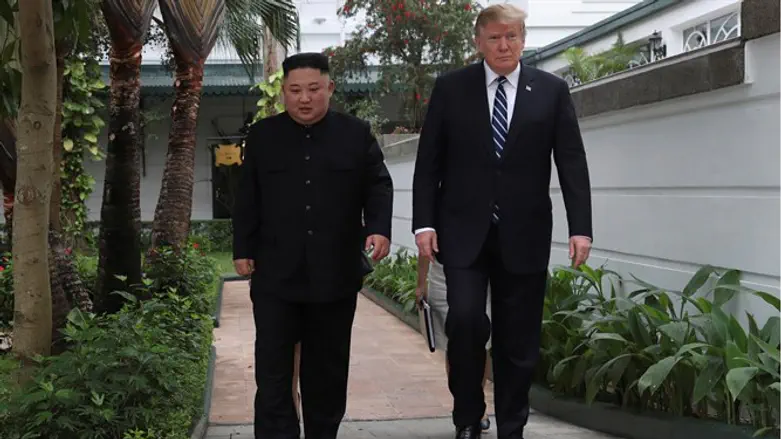
US President Donald Trump may agree to freezing North Korea's nuclear plans, instead of dismantling its capabilities, The New York Times reported.
Such a freeze, the report said, would "essentially enshrines the status quo, and tacitly accepts the North as a nuclear power," but falls short of Trump's promise to put an end to the rogue nation's ability to threaten the US with nuclear weapons.
The Times article also said such an agreement would seek to expand an offer made in February by North Korean Supreme Leader Kim Jong-un, in which his country would give up its main nuclear fuel production site in exchange for the lifting of some sanctions. At the time, Trump rejected Kim's offer, since much of North Korea's capabilities are now outside the Yongbyon site.
A freeze would include expanding the definition of that site beyond its physical boundaries, essentially preventing North Korea from producing new nuclear material.
Meanwhile, US envoy to North Korea Stephen E. Biegun said Sunday that the Times' theory was "pure speculation" and that his team is "not preparing any new proposal currently."
"What is accurate is not new, and what is new is not accurate," he told the Times.
Two former US presidents - Bill Clinton and George W. Bush - attempted deals with North Korea. Both deals fell apart, paving the way to North Korea's current arsenal of between 20-60 nuclear weapons.
And in a tweet, US National Security Adviser John Bolton wrote: "Neither the NSC staff nor I have discussed or heard of any desire to 'settle for a nuclear freeze by NK.' This was a reprehensible attempt by someone to box in the President. There should be consequences."
Former Director of National Intelligence James Clapper, who served under former US President Barack Obama, on Monday told CNN that "the general idea of accepting the current nuclear arsenal, whatever it is, is a good start point."
"I've come around to the position some months ago that perhaps as at least an initial plateau, in the interest of getting something done, it might be worth considering capping what the North Koreans have now and then maybe on a much longer term basis trying, you know, to get them to reduce their nuclear holdings to zero, which I think is going to be very difficult."
He added that such a plan would "require some very complex negotiations" and that supervising its implementation "would be a hard pill for the North Koreans to swallow."
A State Department spokesperson denied such a plan was under consideration